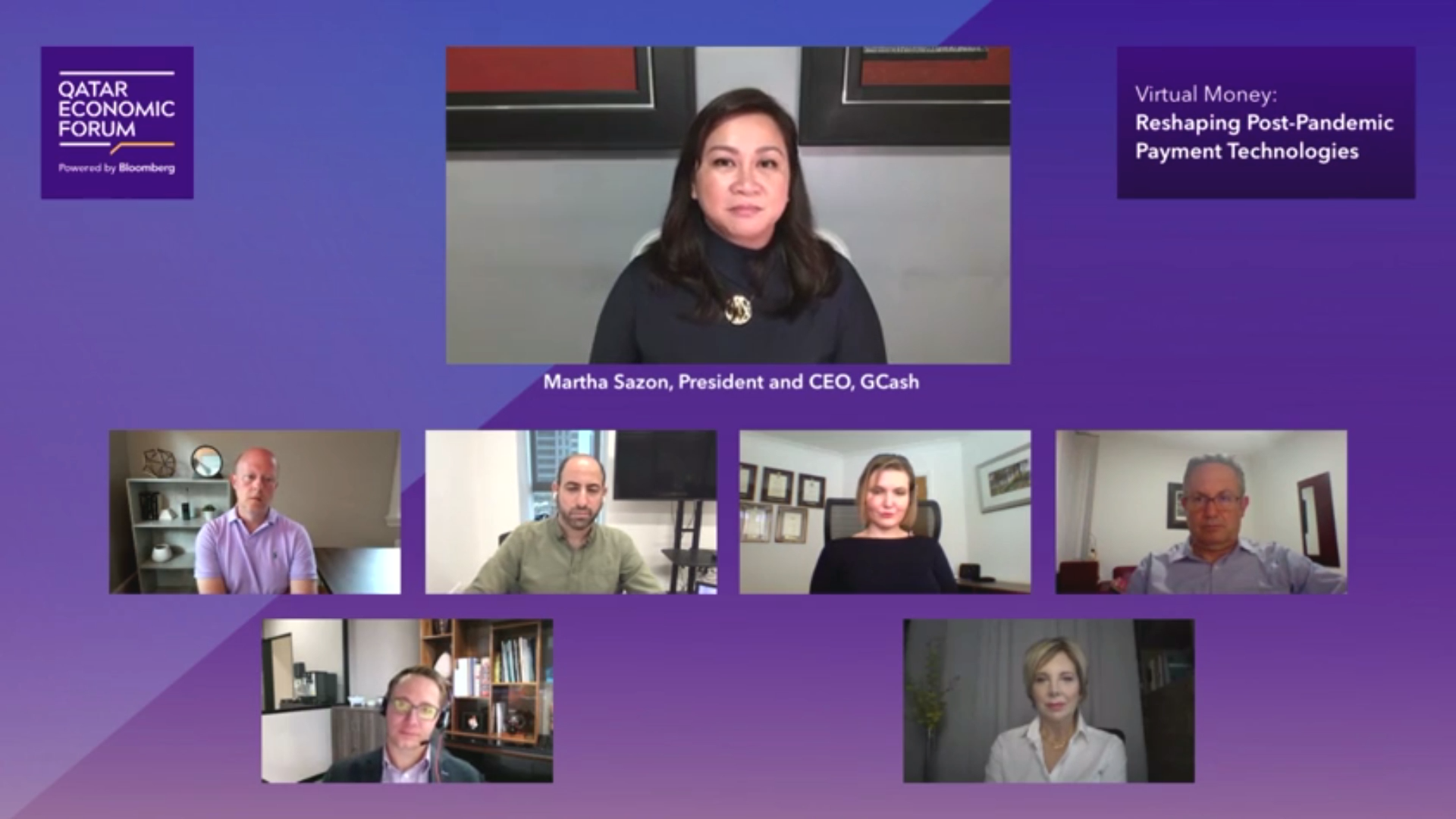
GCash, the Philippines’ undisputed no.1 mobile wallet app, provided the bright spot for Southeast Asia at this year’s Qatar Economic Forum, an international gathering of global business leaders, heads of state and policy innovators coming together to look forward as the world emerges from the economic shock created by the COVID-19 pandemic. The country’s leading mobile e-wallet elicited positive reactions for its strategic programs to provide financial access and solutions for all Filipinos, especially for the “unbanked” sectors, amid the ongoing COVID-19 pandemic and beyond.
During the virtual roundtable discussion entitled “Virtual Money: Reshaping Post-Pandemic Payment Technologies”, GCash president and chief executive officer Martha Sazon shared the exponential growth of GCash during the pandemic which is swiftly making the vision of financial inclusion a reality for Filipinos. Sazon highlighted that in January 2020, GCash had only 20 million users and this number ballooned to 40 million in April 2021, with users accessing the GCash app at least twice a day. She explained that wide access to GCash “encourages velocity of the movement of money and diversification of the use of cash. Because every transaction is just a tap away using GCash, it accelerates financial literacy. Filipinos are now more actively involved in decision making and in managing their finances.”
Sazon also highlighted how GCash opens up opportunities for merchants and small enterprises as the app now has 2.2 million merchants and social sellers as active users. Citing an example to drive home her point, Sazon shared her experience at the beach where fisherfolks were trying to sell her their catch of the day but after saying she does not have cash on hand, the fisherfolk offered to accept payment using GCash.
“It’s so heartwarming to see that we now have fisherfolks using e-wallet and subscribing to various financial services,” shared Sazon. “Because of that, opportunities have opened up for the “unbanked” like the wet market vendors and tricycle drivers. They are now more financially involved, so GCash’s vision of financial inclusion is slowly becoming a reality.”
To help keep the economy going and support various businesses when the country imposed strict lockdown restrictions, GCash introduced a number of innovative financial services and products, including the QR on Demand: a new and better way to send and receive money in place of giving their GCash number for safe and hassle-free payments ─ whether it’s for personal use or for small businesses.
Within the app, users can find GLife where they can access their favorite apps without needing to download them separately. In financial services, there’s GInvest, an easy investment feature, GInsure for insurance, GSave, an online savings bank, and GCredit, a personal credit line with up to P30,000 credit line.
With the app’s host of products and services, Filipinos now have easy access to money transfers and purchasing essentials, enabling merchant cashless payment options. It has also become the platform of choice to help other people through donations or government aid, and kickstart Filipinos’ journey towards availing of financial services.
“It is important to note that the Philippines is a vastly different market from the rest of Asia. We aren’t China with more banked users already. With a diverse set of cultures, anyone trying to make it in the Philippines must have an appreciation of the country’s uniqueness — both in its gems and challenges,” said Sazon.
Joining Sazon in the discussion on virtual money were Jemery Allaire, co-founder of global financial technology firm Circle, Ran Goldi, CEO of First Digital, Jan Pilbauer, CEO of BankservAfrica, Dax Grant, CIO of HSBC and Salvador Perez-Galindo, VP for Govt Affairs of Visa. The session was moderated by Julie Chariell, Senior Analyst for Fintech and Payments of Bloomberg Intelligence. This year’s Qatar Economic Forum brought together over 100 world heads of state, diplomats, academic, business and economic leaders.




